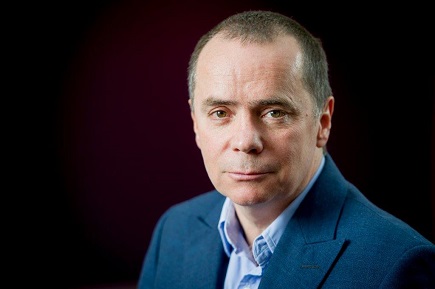World's largest autism grant will transform research landscape

The largest research grant ever given for neurodevelopmental conditions has been awarded by the Innovative Medicines Initiative to an international consortium academically led by the Institute of Psychiatry, Psychology & Neuroscience (IoPPN) at King’s College London.
The €115 million grant, titled Autism Innovative Medicine Studies-2-Trials (AIMS-2-Trials), will increase our understanding of autism and help develop new therapies to improve health outcomes and quality of life for autistic people.
More than 1 in 100 people are autistic. In addition to the core features of autism, many autistic people struggle with co-occurring conditions such as epilepsy, anxiety and depression, and life expectancy for autistic people can be reduced by up to 30 years. However, the causes of autism and its associated difficulties remain largely unknown and there are very few effective and autism-appropriate therapies.
AIMS-2-Trials brings together autistic people and their families, academic institutions, charities and pharmaceutical companies to study autism and provide an infrastructure for developing and testing new therapies. In line with the autism community’s priorities, the consortium will also focus on why some autistic people develop additional health problems that severely impact both quality and length of life.
Professor Declan Murphy, the project academic lead and Director of the Sackler Institute for Translational Neurodevelopment at the IoPPN at King’s says: ‘Many autistic people face extremely poor health outcomes, yet autism research receives far less investment than other conditions which also limit life expectancy and quality of life, such as cancer or dementia. This grant will allow us to bridge the gap between basic biology and the clinic by offering personalised approaches that address problems which really impact autistic people’s lives.’
All autistic people are different which makes identifying and testing new therapies challenging. AIMS-2-Trials will take a precision medicine approach aimed at tailoring therapies to a person’s biological profiles. Achieving this will require developing tests that can predict how a person’s autism may progress throughout development and their likelihood of developing additional mental health problems.
AIMS-2-Trials will create the first European clinical trials network for autism, as well as allowing for an internationally integrated partnership with charities, government agencies and industry to rapidly determine if therapies are effective. Partnership with autistic people, their families and carers will be a crucial part of developing therapies that achieve the outcomes which matter most to autistic people.
Dr James Cusack, Director of Science at Autistica, a UK charity supporting AIMS-2-Trials, says: ‘Autistic people deserve an equal right to a long, healthy happy life. To deliver on that vision, we're working together to understand why autistic people are different from each other. We're excited to be joining this consortium to ensure that the views of autistic people and their families are considered throughout the project.’
Professor Louis Reichardt, Director of the Simons Foundation Autism Research Initiative (SFARI) says: ‘The development of new and effective therapies for autism is a daunting task that requires the talents, efforts, and resources of public, private, and non-profit sectors. The scientists at SFARI will be working with AIMS-2-Trials investigators on many of the project's initiatives, and we look forward to the project's success.’
Through the Innovative Medicines Initiative, European Union funding matches in-kind contributions from autism charities, with €55.5 million provided by the Simons Foundation, Autism Speaks and Autistica, and further funding provided by the industry members of the European Federation of Pharmaceutical Industries and Associations (EFPIA). F. Hoffmann-La Roche is the industrial lead for AIMS-2-Trials.
This project has received funding from the Innovative Medicines Initiative 2 Joint Undertaking under grant agreement No. 777394. This Joint Undertaking receives support from the European Union’s Horizon 2020 research and innovation programme, EFPIA, Simons Foundation, Autism Speaks, and Autistica.
AIMS-2-TRIALS builds on an initial investment to establish a UK autism research consortium by the Medical Research Council to better understand brain biology, and subsequent funding from the National Institutes of Health Research to identify the health and social needs of autistic people and their families.
These efforts set the stage for the first EU AIMS grant, also funded by through the Innovative Medicines Initiative, which established both a European-wide research network and the world’s largest clinical studies on autism. EU AIMS made significant advances such as understanding how brain development, anatomy and function are related to symptoms of autism. AIMS-2-TRIALS will build on these discoveries by studying people through the lifespan to understand what drives good outcomes for autistic people and their families.
Contact
For further media information please contact: Robin Bisson, Senior Press Officer, Institute of Psychiatry, Psychology & Neuroscience, King’s College London, robin.bisson@kcl.ac.uk / +44 20 7848 5377 / +44 7718 697176.